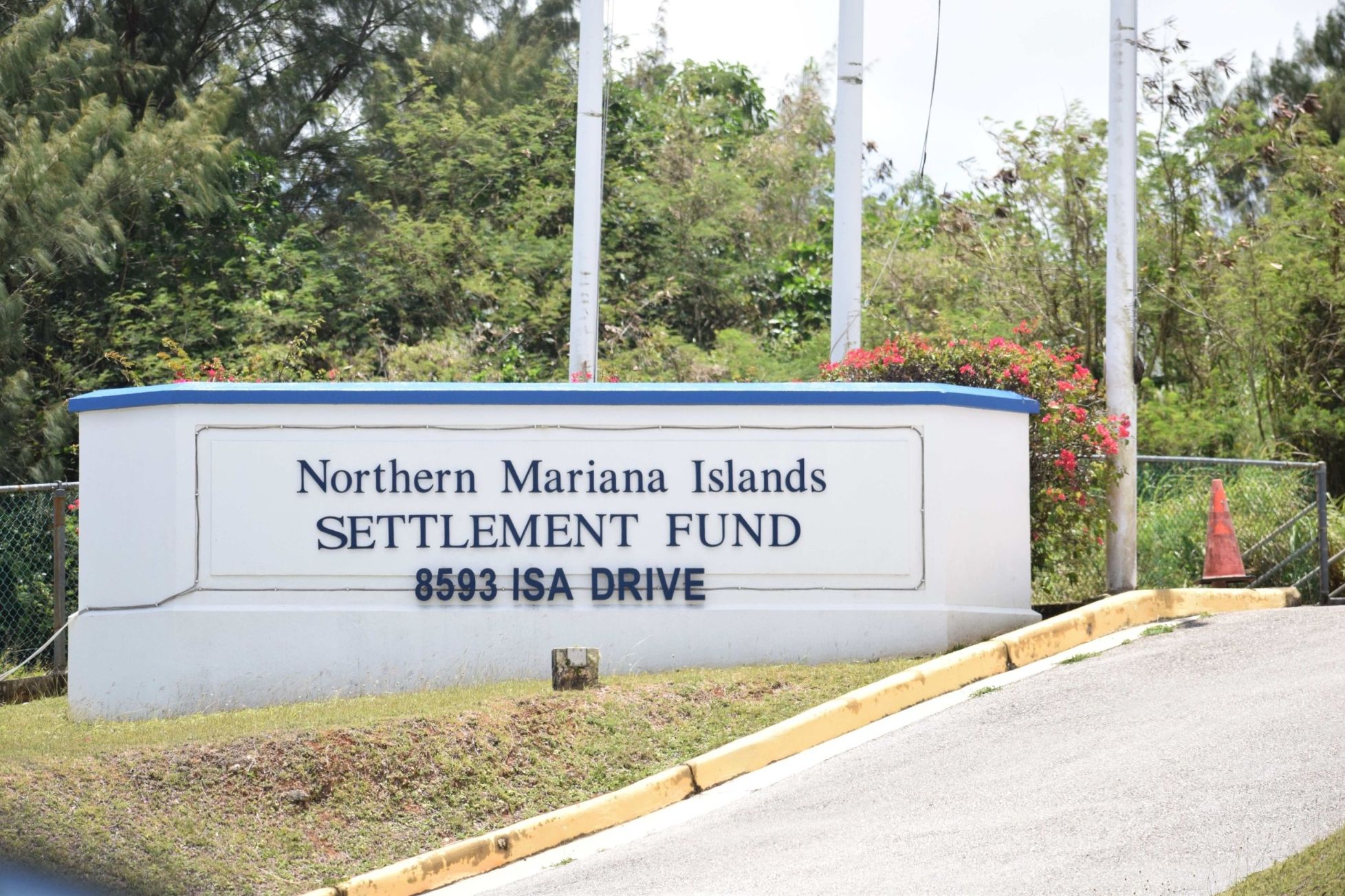
MAGISTRATE Judge Heather Kennedy issued another warrant of arrest in rem for funds seized from two Bank of Saipan accounts in 2019, after the U.S. Attorney’s Office for the Districts of Guam and the NMI filed an amended complaint of forfeiture in rem and an application for warrant of arrest in rem on Friday.
A warrant of arrest in rem is a legal order issued by a U.S. court that authorizes the seizure of property, rather than the arrest of a person.
Forfeiture in rem refers to a legal process in which property is seized because it is connected to illegal activity, rather than targeting an individual.
In the first amended verified forfeiture complaint, Assistant U.S. Attorney Mikel W. Schwab sought to forfeit $271,087.88 and $39,188.38, which were seized on Nov. 8, 2019, from two Bank of Saipan accounts held in the name of “MCS.”
The warrant of arrest in rem orders the U.S. Marshals Service, or any other duly authorized law enforcement officer, to take possession of the property.
The amended complaint of forfeiture arises out of an investigation of the Federal Bureau of Investigation and U.S. Internal Revenue Service-Criminal Investigation of a suspected conspiracy by foreign entities and entities and individuals in the CNMI to commit wire fraud and money laundering.
The suspected conspiracy involved the transfer of funds, including by international wire transfer, for the purpose of promoting a scheme to illegally influence CNMI government officials in exchange for preferential treatment, thereby depriving the citizens of the CNMI of their intangible right to honest services of those government officials, the complaint stated.
According to the complaint, conspirators used international wire transfers and communications made with the intent to promote a wire fraud scheme, which constituted specified unlawful activity.
“MCS” was incorporated for the purpose of “banking and financial services, real estate development, and business management,” and is owned and operated by A.Y., the complaint stated.
“MCS” maintained Account 1 and Account 2 in the Bank of Saipan, for which A.Y. was the sole signatory.
The amended complaint also mentioned:
“Individual 1” is a resident of the CNMI and is partner in a business in the CNMI.
“Individual 2” is a resident of the CNMI and is partner in a business in the CNMI.
“Individual 3” is a resident of and a political figure in the CNMI who, during the relevant period, owed a fiduciary duty to the citizens of the CNMI.
“Individual 4” is a resident of and a political figure in the CNMI who, during the relevant period, owed a fiduciary duty to the citizens of the CNMI.
The complaint also mentioned a “Company” building a resort and casino in the CNMI.
Imperial Pacific International is the only company licensed by the CNMI government to operate a casino on Saipan. IPI operated for four years until the Covid-19 pandemic forced its closure in March 2020.
Allegations
According to the amended complaint, beginning in 2013, the owners and operators of the Company established relationships with CNMI political figures by, among other things, sponsoring foreign trips, including to Hong Kong and Macau, and, on at least one occasion, to Singapore via private jet.
Following the trips, the participating political figures joined other members of the CNMI Legislature to pass a bill that enabled an exclusive gaming license on Saipan.
The then-governor signed the final bill into law in July 2014.
“Individual 3” played an integral role in passage of the casino-enabling legislation, the complaint stated.
Approximately one month later, a body of appointed CNMI government officials awarded the exclusive license to the Company after disqualifying the only other bidder.
Months prior to receiving the license, in May 2014, the Company had already begun informally paying “MCS” and A.Y. several thousand dollars per month.
On or about June 1, 2015, A.Y. signed a letter agreement with the Domestic Subsidiary Company for “MCS” to serve as a “consultant” at a rate of $5,000 per month. Under this agreement, “MCS” was to receive reimbursements for costs and expenses only if such payments were previously approved by the Domestic Subsidiary Company.
Days later, on or about June 18, 2015, A.Y. signed a second letter agreement with the Foreign Parent Company to be a “consultant” at a rate to be “further determined and agreed in writing.” Under the second agreement, A.Y. was to be reimbursed by the Foreign Parent Company for “all reasonable costs and expenses” upon production of receipts.
Three years later, A.Y. and the Domestic Subsidiary Company signed an “amended agreement” dated Nov. 6, 2018, which established that A.Y. would be paid at a rate of $184,000 Hong Kong dollars (approximately U.S. $23,500) per month, and the Domestic Subsidiary Company would only reimburse pre-approved expenses.
The written agreements did not fully or accurately depict the true financial dealings or the relationship between the Company, A.Y., and “MCS,” the complaint stated.
In practice, the majority of financial dealings between the Company and “MCS” appear to be informal, if not ad hoc, and “MCS’s” actions on behalf of the Company exceeded the scope of legitimate lobbying or consulting, the complaint stated.
Between 2014 and 2019, the Company transferred more than $2 million to “MCS” and A.Y. primarily via three routes: (1) monthly checks of $5,000 from the Domestic Subsidiary Account that were deposited to “MCS” accounts; (2) monthly international wire transfers of approximately $34,000 or $35,000, at first directly from the Foreign Parent Account in Hong Kong to “MCS” Account 1, and, beginning in 2017, indirectly through the Foreign Payroll Account in Hong Kong to “MCS” Account 1; and (3) frequent “reimbursements” from the Foreign Parent Account in Hong Kong to an account held by A.Y. in China (which account A.Y. failed to report as required by U.S. law), the complaint stated.
According to the complaint, the structure of the first two methods of payment is evidence of its illicit purpose.
CNMI regulations required that vendors who did business with the Company over a prescribed amount of money be licensed and subject to heightened diligence. By law, the regulating agency had access to the Company’s domestic bank accounts and could therefore verify vendor payments made to “MCS” from the Domestic Subsidiary Account. The regulatory agency did not, however, have access to the Foreign Parent Account or the Foreign Payroll Account, so it could not detect or verify payments from those accounts to “MCS”, the complaint stated.
The vast majority of the Foreign Parent Account or Foreign Payroll Account payments were made to “MCS” Account 1. A.Y. then transferred approximately 85 percent of that money into “MCS” Account 2, which he then used to gain access and influence CNMI officials — via campaign donations and other direct and indirect benefits — while effectively masking its foreign source, the complaint stated.
“Although A.Y.’s bank account in China is not the subject of this forfeiture action, the third method is also evidence of the overall scheme’s illicit purpose. The reimbursements from the Foreign Parent Account to A.Y.’s foreign account was for ‘expenses’ paid from MCS accounts in the CNMI,” the complaint added.
“The ‘expenses’ were in fact money spent to buy favor with officials, their families, or influential individuals in the community,” the complaint stated.
Because the payments, which exceeded $370,000 over five years, went straight from one Chinese bank to another Chinese bank, they avoided detection by the casino’s regulators, as well as by local and federal tax collectors, the complaint stated.
This enabled “MCS” to falsely lower its tax obligations, by deducting the payments as business expenses but failing to report that they were reimbursed overseas, the complaint added.
“Combined, the Company’s three mechanisms of payments to MCS and A.Y. provided A.Y. with ample salary as well as a substantial pool of secret money, a ‘slush fund,’ in other words, which he used to illicitly buy influence with key CNMI officials when favorable actions were needed,” the complaint stated.
Scheme
Between 2014 and 2019, “A.Y., MCS, Individual 1, Individual 2, Individual 3, Individual 4, the Company, and others knowingly devised a scheme and artifice to deprive the people of the CNMI of the intangible right to honest services by providing a stream of benefits to, for, or on behalf of CNMI government officials for the purpose of gaining preferential treatment for the Company,” and in doing so, “used wire communications in interstate and foreign commerce, and conspired to engage in that honest services fraud scheme,” the complaint stated.
In addition to regularly appearing and participating in official meetings and arranging overseas tours for government personnel, “A.Y. also arranged, participated in, and was privy to numerous private discussions between the Company’s owners and the highest echelons of the CNMI government,” the complaint stated.
Bank records and CNMI campaign financial statements show that from June 2014 through January 2019, “A.Y. and MCS used funds provided by the Company and channeled through MCS Accounts to contribute more than $46,000 to various individual candidates, campaigns, inauguration committees, and political parties —including Individual 3 and Individual 4,” the complaint stated.
These amounts included a $10,000 contribution to an inaugural committee in January 2019, the complaint added.
The candidates’ CNMI campaign statements of account frequently failed to disclose A.Y. and MCS’s contributions to their campaigns, as required by CNMI law, the complaint stated.
During that same period, A.Y. arranged and at least partially paid for several overseas trips for CNMI government officials (including Individual 4 on at least one occasion), frequently met with government officials for golf, meals, drinking, and karaoke, and typically used A.Y.’s credit card to cover the bill, the complaint added.
These payments frequently exceeded $100 and occasionally $1,000.
CNMI law generally bars CNMI government officials from accepting non-monetary gifts with value greater than $50; therefore, these payments violated the CNMI Government Ethics Code, the complaint stated.
“A.Y. unlawfully used money from the MCS accounts to pay off the credit card that A.Y. used to pay for travel, golf, meals, drinking, and karaoke for government officials. While A.Y. claimed a portion of the money he received from the Company as A.Y.’s personal salary and business income from MCS, CNMI tax filings from 2014 to 2019 show that A.Y. treated a substantial portion of the money that he received from the Company as ‘business expenses,’ ” the complaint stated.
Such expenses included nearly $200,000 for travel, meals, and entertainment, as well as at least $100,000 for non-specifically defined “other” expenses, the complaint added.
“Furthermore, MCS bank records between 2014 and 2019 show frequent cash withdrawals and encashments of checks made payable to A.Y., typically in increments of $1,000.
“Bank records for Individuals 1 and 2 show numerous cash deposits, typically in increments of $1,000. A.Y. frequently met with Individuals 1 and 2 at their office, even though there is no known business relationship between A.Y. and Individuals 1 and 2.
“Employees of Individuals 1 and 2 reported they were tasked with depositing envelopes of cash after such visits. Individuals 1 and 2 are closely affiliated with Individual 3, and evidence shows that Individuals 1 and 2 frequently gave substantial amounts of money to Individual 3,” the complaint stated.
According to CNMI tax and other records between 2016 and 2018, “MCS” spent more than $320,000 on “legal and professional fees,” nearly half of which were, in fact, illicit and unlawful payments from “MCS” Account 2 to persons in the CNMI who could influence policy involving the Company, including one person close to Individual 4, the complaint stated.
In the case of the person close to Individual 4, “MCS” paid that person $62,500 over one year, the complaint added.
In exchange, that person provided “MCS” with less than eight pages of “memos” on random topics such as farm loan programs and challenges facing the public hospital. Much of the pages’ content consisted of little more than publicly available information that was cut and pasted from sources readily found on the internet, the complaint stated.
In exchange for benefits, “the CNMI government (with involvement from Individual 3, Individual 4, and other officials who benefitted from MCS’s largesse) unlawfully extended to the Company uniquely favorable treatment, including but not limited to allowing the Company to escape liquidated damages after missing construction deadlines, extending the Company’s operation and related deadlines with little or no penalty, amending regulations to accommodate the Company’s development schedule, and deferring enforcement of tax, labor, and other contractual obligations owed by the Company to the CNMI,” the complaint added.
“In one example of particular importance, Individual 3, Individual 4, A.Y., and certain of the officials A.Y. sought to influence through unethical gifts, undermined various efforts to mandate that the Company either provide verifiable proof that it was financially capable of completing its construction project, or to at least post a completion bond.
“On April 19, 2024, the Company declared bankruptcy. Work on the project ceased as early as 2021, leaving behind an unfinished, dominating eyesore to loom over the CNMI’s central business and tourism district. The partially completed building, poorly constructed to begin with, is deteriorating rapidly in the CNMI’s humid environment, placing people and businesses nearby in physical jeopardy. Because the Company was not required to post a completion bond, the CNMI has no mechanism to mitigate the damage.
“To conceal this conspiracy and scheme to deprive the people of the CNMI of the honest services of Individual 3, Individual 4, and other CNMI politicians, A.Y. engaged in specific acts of deception against the CNMI government.
“Pursuant to the CNMI Lobbying Disclosure Act, the Commonwealth Election Commission requires lobbyists to disclose contributions and expenditures in their yearly renewal application.
“A.Y.’s filings from 2015 through 2018 swear that MCS received no contributions and made no expenditures in furtherance of its lobbying activities, a claim directly contradicted by MCS’s own business records and tax filings.
“Accordingly, the international transfers of money between May 2014 and November 2019 from the Foreign Parent Company and the Foreign Payroll Company in Hong Kong to MCS Account 1 in the CNMI, as well as the money that was then transferred to MCS Account 2, constituted international promotional money laundering payments,” the complaint stated.
Verified claim
In 2023, represented by attorney Mark Hanson, Marianas Consultancy Services and Alfred Yu filed a verified claim in federal court on Feb. 7, 2023, claiming ownership of the funds seized from the two Bank of Saipan accounts totaling $310,276.26.
Hanson asked the court to dismiss the verified complaint for forfeiture in rem.
Last month, Chief Judge Ramona V. Manglona of the District Court for the NMI granted in part and denied in part “MCS” and Yu’s motion to dismiss the 2022 U.S. government’s verified complaint for forfeiture.
She also gave the U.S. government leave to file an amended complaint.
According to Judge Manglona, “Scheme 1 does not constitute specified unlawful activity and cannot support forfeiture under international promotional money laundering forfeiture or proceeds money laundering forfeiture.”
However, she said that Scheme 2 in the complaint supports forfeiture on the grounds of international promotional money laundering and honest services fraud.
She said that Scheme 2 sufficiently alleges the requisite quid pro quo bribery for honest services fraud.
“Thus, understanding that claimants will receive additional identifying information in discovery materials, the complaint sufficiently alleges information about the identity of the public officials to survive dismissal,” the judge added.
As for Scheme 3, defrauding the CNMI of tax revenue, Judge Manglona said the complaint does not support forfeiture.
“Here, the complaint only states the use of foreign wires in China to execute Scheme 3, and thus it lacks the jurisdictional requirement for wire fraud,” the judge said.
On Nov. 7, 2019, the Federal Bureau of Investigation executed search warrants at the Office of the Governor, casino investor Imperial Pacific International and the office of Alfred Yue of Marianas Consultancy Services LLC, among other offices. Marianas Consultancy Services LLC was a consultant for IPI.











